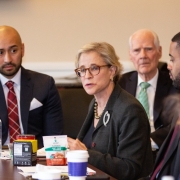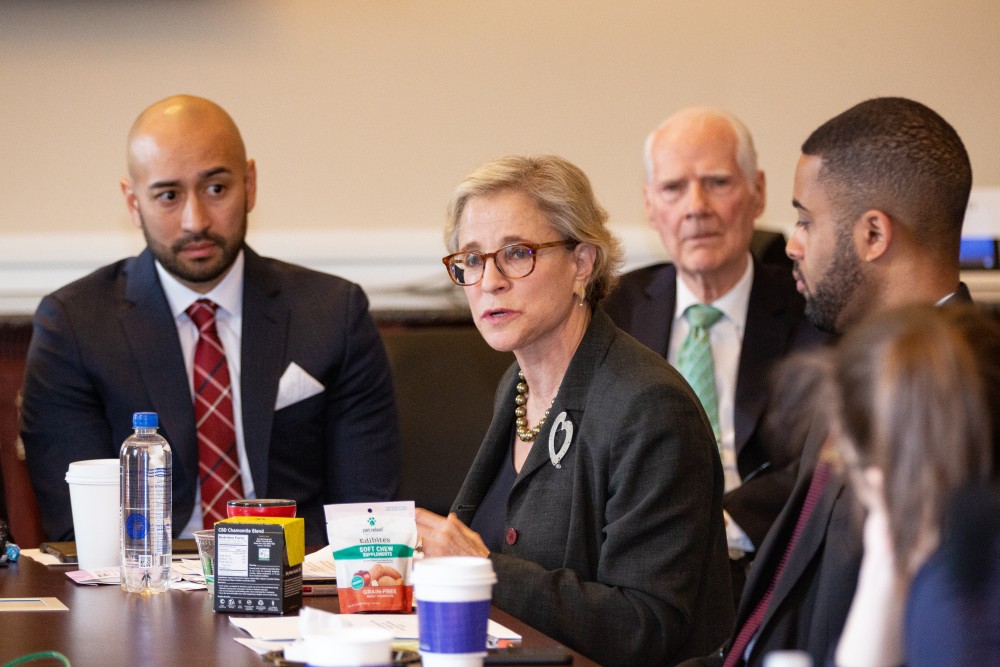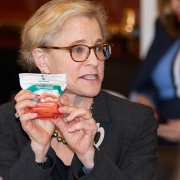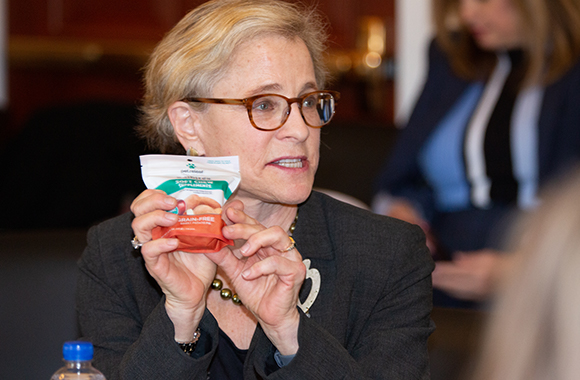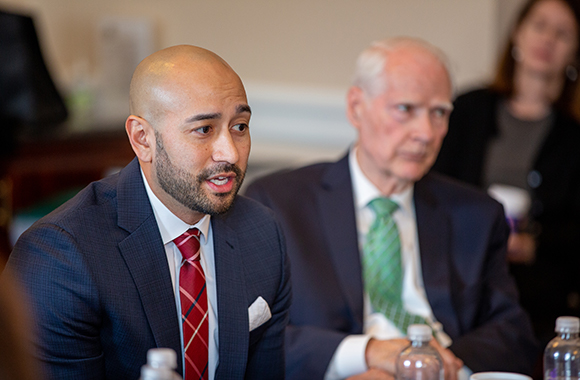December 10, 2019
Dear Member of Congress,
For more than 120 years, the National Consumers League has pursued the values of access to quality products, honest labeling, and safe, effective medicines for America’s consumers. We write to you today about a growing public health concern affecting millions of Americans in every state and congressional district across the country. Unregulated, untested cannabidiol (CBD), an extract of the hemp plant, has infiltrated the market in a dizzying range of products. These products pose a significant threat to consumers.
The CBD market is one of the fastest growing retail segments in the nation. By 2022, Americans are expected to purchase approximately $1.8 billion worth of these products, triple the amount since last year. CBD, however, continues to raise questions and concerns for consumers.
CBD products are not currently tested or evaluated for safety and efficacy, nor required to meet similar safety standards as the tube of toothpaste we buy at the grocery store. CBD products are too often deceptively labeled and may contain contaminants that can harm consumers. *Independent testing of the 240 top-selling CBD products found that 70 percent were contaminated with substances including lead, arsenic, herbicides, pesticides, and toxic mold.
*New public opinion research conducted by Greenberg Quinlan Rosner finds that voters overwhelmingly – an 83 percent majority – support allowing the Food and Drug Administration (FDA) to evaluate and regulate CBD products. The research found that ensuring the safety and effectiveness of CBD grows even stronger among those who have used CBD products or describe themselves as very familiar with them. When asked about illness resulting from vaping CBD, 83 percent of respondent expressed concern, with nearly half, 48 percent, being very concerned.
This is why NCL created Consumers for Safe CBD in partnership with Consumer Federation of America (CFA) and Community Anti-Drug Coalitions of America (CADCA) to encourage the FDA to take strong, effective, and prompt action to protect the public from the potential harms posed by unregulated, untested CBD.
As Executive Director of NCL, I hope you will lend your voice in calling for the FDA to take immediate action to protect consumers from potentially harmful CBD products and pursue four common-sense objectives:
1. WARN THE PUBLIC OF THE DANGERS OF THE CBD MARKET
The public should be warned regarding the dangers of unapproved, untested CBD products. Clearly, as verified by the explosive growth in sales, the public is not appropriately informed about the potential dangers of unapproved, untested CBD products that contain harmful contaminants and may not have the ingredients listed on product labels. Resources should be devoted to a national informational campaign that warns consumers of these dangers. There is a growing interest in CBD products, but the marketplace is largely an unregulated “wild west,” and consumers literally often have no way of knowing what is contained in the products they are purchasing.
2. ENFORCE EXISTING REGULATIONS REGARDING LABELING (INGREDIENTS, RISKS, ETC.)
The FDA should curtail the proliferation of potentially dangerous, unapproved CBD products by using its existing legal authority. The FDA should use its authority to penalize manufacturers, marketers, and distributors of CBD products that: 1) make medical claims that cannot be scientifically verified, 2) market products to minors, 3) sell products that contain higher or lower-than-advertised levels of CBD and/or THC, or harmful ingredients and 4) sell products that have inaccurate labels. Swift and strong enforcement can serve as an effective deterrent effect against the future marketing of unapproved, potentially harmful CBD products.
3. DETERMINE SAFE LEVELS OF THC/CBD TO BE ALLOWED IN CBD PRODUCTS
Clear differentiation between medicines and consumer products should be established, including firm parameters as to CBD levels that can be safely included in a particular product. The FDA should establish a firm, enforceable ceiling on the potency of CBD that can be contained in an individual product and require safe packaging practices, similar to the child-proof cap closures on prescription medicines. All products should include a 1-800 phone number to allow concerned consumers to call the manufacturer to make specific inquiries about the product.
4. ENCOURAGE ROBUST CLINICAL RESEARCH INTO THE POTENTIAL OF CBD TO IMPROVE HEALTH AND LIVES
The FDA should incentivize CBD research, clinical trials, and the creation of new CBD treatments that are thoroughly vetted through the proven FDA process. CBD has the potential to improve lives, but with little research and clinical data, the risk is currently greater than the reward. We should encourage research to ensure that CBD reaches its full potential.
Your constituents should be protected from the potential dangers related to CBD products. This does not require the creation of new laws or regulations, but rather that the FDA simply use its existing authority to protect public safety. The agency has already sent more than 50 warning letters to CBD product manufacturers making egregious health claims about their products’ ability to treat cancer and other serious illnesses. It recently advised women who are pregnant or breastfeeding to avoid using any CBD products, citing a number of health and safety risks. But these efforts need to be stepped up. We hope you will join us in asking the FDA to erect stronger safeguards, including safe concentration limits, around a rapidly growing, but unregulated, industry that is already causing harm to consumers.
If you or your staff has any questions, please reach out to our Director of Health Policy Patricia Kelmar at patriciak@nclnet.org or 202-207-2824.
Thank you for your consideration.
Sally Greenberg
Executive Director
National Consumers League
*Links are no longer active as the original sources have removed the content, sometimes due to federal website changes or restructurings.
###
About the National Consumers League (NCL)
The National Consumers League, founded in 1899, is America’s pioneer consumer organization. Our mission is to protect and promote social and economic justice for consumers and workers in the United States and abroad. For more information, visit www.nclnet.org.

